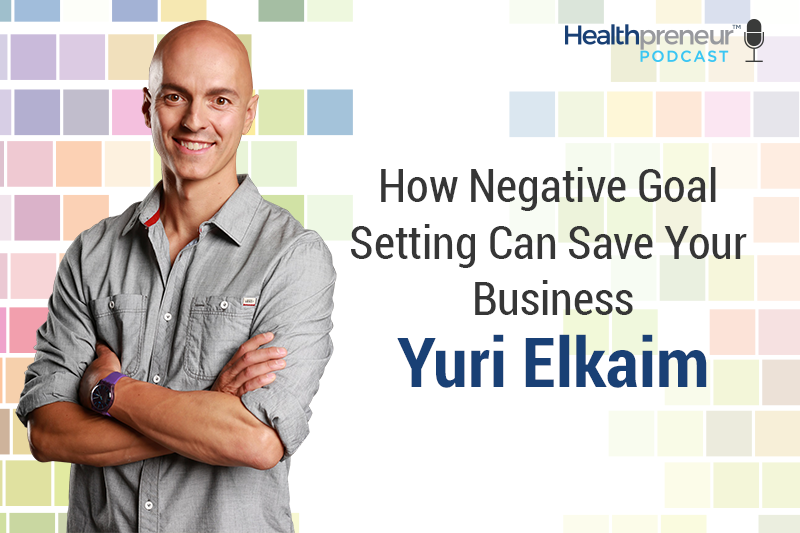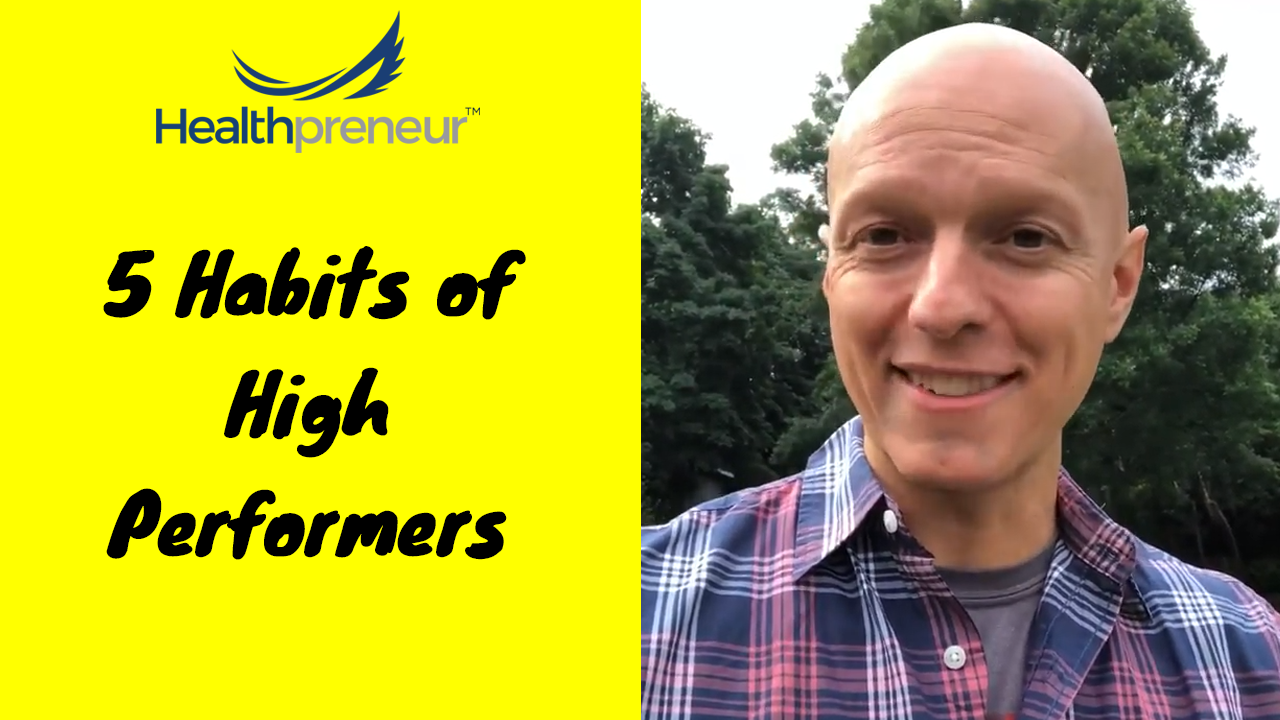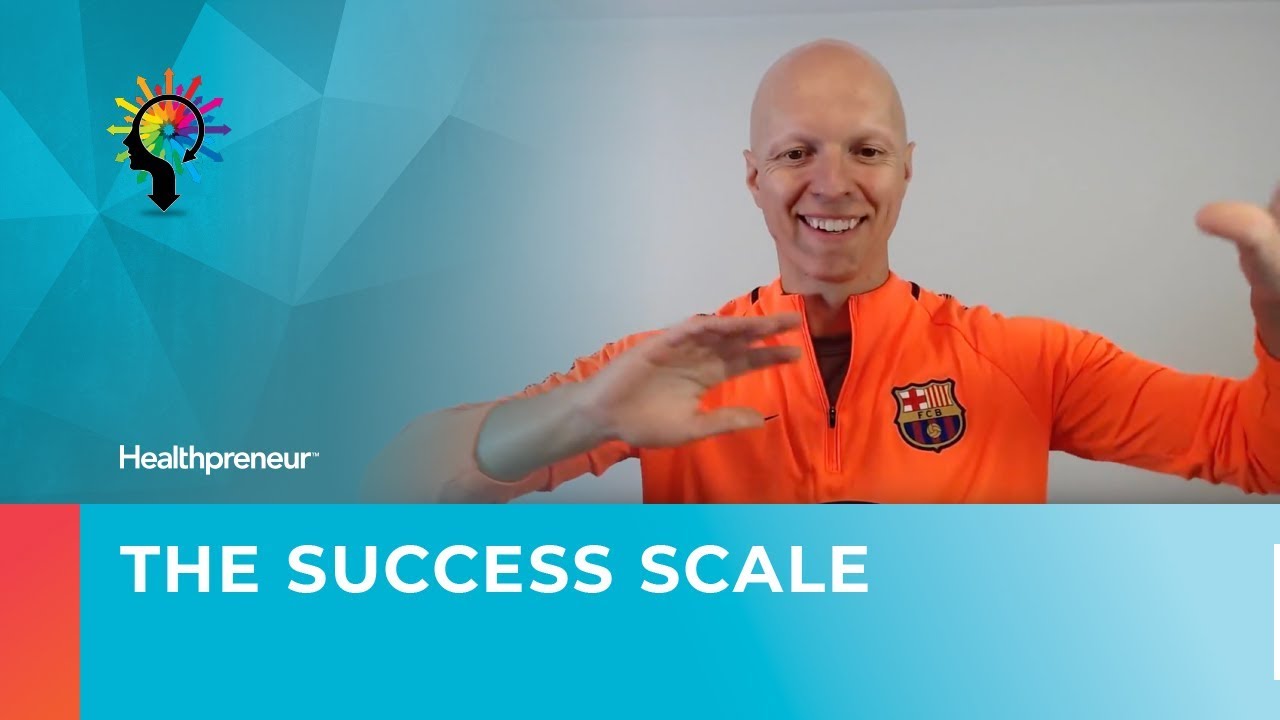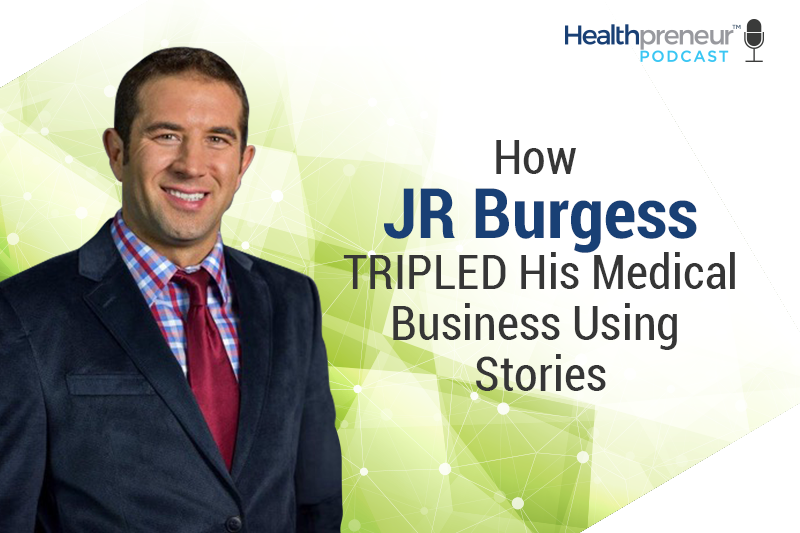Proprietary Process: How to Discover Your Secret Sauce
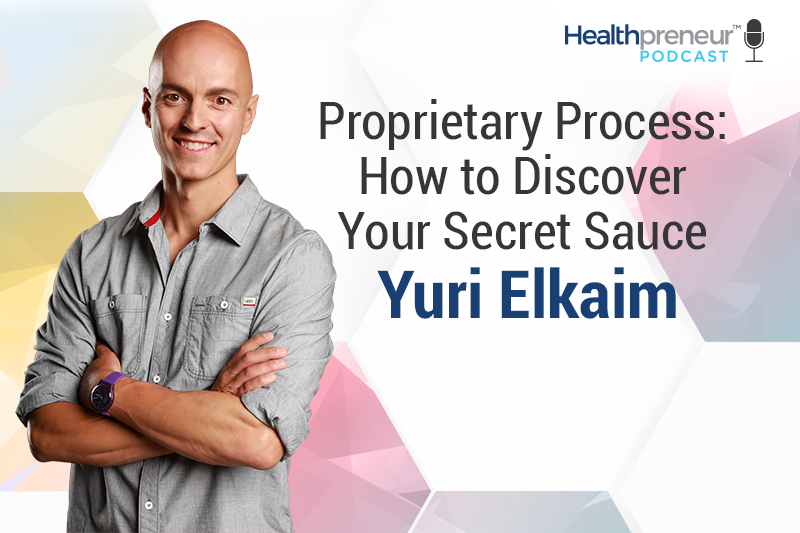
Happy Monday! We are back with solo round of the Healthpreneur Podcast, where I’m going to be talking to you about what I call a Proprietary Process™!
What is a Proprietary Process and why is it trademarked? Well, the trademark is all part of the magic. I don’t want to give everything away, so I’ll just say that this process will help you stand out in a competitive marketplace.
We’re going to look at your secret sauce—what really helps you stand out from the crowd and produce results for your clients—and really dig deep, analyze it, and make it even more marketable. This is a really quick episode with some simple processes that can really help move that needle in your business.
In this episode I discuss:
1:00 – 5:00 – The basics behind the Proprietary Process.
5:00 – 10:00 – Some examples from Yuri.
Transcription
Hello, and welcome back to the Healthpreneur podcast. Yuri here with you. Apparently I’m losing my voice. It’s all good. I’ve got some water with apple cider vinegar.
Today, we’re talking about how to stand out in a very competitive marketplace using what I call a Proprietary Process™. We’re going to look at how you can discover your secret sauce, the thing that really helps your methodology produce results for your clients and customers. This is actually a process that we work with our clients in more depth on, within our Health Business Accelerator workshop.
The basics behind the Proprietary Process
Essentially, what we do is look at, “Okay, how do you create a result for someone?” If you help someone lose 30 pounds in 30 days, how do you do that? If you help someone have a lot more energy, how do you do that?
A lot of times, we’re really not conscious of how we create change for someone because we just do it naturally. We’ve been doing it for so long that it becomes the unconscious competence. So what I want to walk you through here is, how to extract that and be able to communicate it in a much more tangible manner for people to grasp.
I want to use an example from our Health Business Accelerator workshop.
Before I give you that example, let’s look at the framework first. The proprietary process, first and foremost, is your secret sauce. Think about what steps you go through or what steps you take your clients through, your customers through, to achieve a specific result.
Now, you’re probably not going to be able to answer them right now, but I want you just to write down how you actually do this. “If I help someone go from overweight to thin, how do I do that?”
So, in this case it might be … First we go through some basic dietary changes, or we have them cut out bread and dairy, or we start off with body weight workouts, or whatever your process is, whatever that first step is.
You want to just jot down those steps—in a sequential manner, if possible. So that’s step one.
For step two, you want to take each of those steps and condense them into one or two words. An example would be “proprietary process.” Let’s use the example of helping people make a dietary change as part of their first step to losing weight. We’re going to help them improve their diet.
Well, can that be broken down at all, or do we want to keep it broad?
It depends on how you want to build this out. Let’s say we want to keep it broad, so instead of saying, “We’re going to help you change your diets,” you would give it an interesting name, something along the lines of “food freedom,” perhaps.
Step one is now called food freedom. This is how we help you develop a better relationship with food so you can eat in a way that you don’t feel guilty and shameful, and you actually get great results.
You can see what I’ve done there. It’s a lot more appealing. It’s very different than, “We’re going to help you change your diet,” because no one wants to change anything, but they do want food freedom.
So, if you think about the names of each of these steps, think about them from a benefit perspective, if possible. “Food freedom” is a benefit. It doesn’t always have to be a benefit, but if you can tie a benefit in, then that’s always cool.
So, we’ve identified the steps. We’re going to give each step a name, and maybe there’s ten steps, three steps, four steps. It doesn’t really matter—however many steps you need to go through to get results for that person.
Now, we are going to look at that entire process and give it a name. We’ve got step one, step two, step three, however many steps. Each step has its own name that’s clean and condensed, and it really shows what you’re accomplishing in that specific step, or what benefits you’re getting.
We’re going to give your whole process a name, and we’ll throw a little ™ on the end of it because it’s a proprietary process. No one else has this besides you. Even if the steps are similar to someone else’s, this is your own unique spin on it.

Some examples from Yuri
So, I’ll give you a couple examples. On the content side, we have a process called the Teach to Sell Method. Teach to sell is our process. We show clients how to attract ideal clients that pay premium prices, pretty much whenever they want, through a four-step process we call the Perfect Client Pipeline.
That’s the name of the process, and then the four steps in the process have their own names as well.
Let me give you an example from our Health Business Accelerator workshop. We walk people through a three-phase system, so three phases: attract, convert and deliver.
Each of those three phases has three sub-phases, what we call business accelerators. So there are three little steps under each of those three phases. Under attract, the outcome of that phase is that we help you create the “apple effect,” where we help you clarify your vision, help you position yourself to stand out, and create great value for your audience so that people are lined up to do business with you—kind of like standing outside an Apple store for the new iPhone release.
How do we do that? We go through three steps: vivid vision, power positioning and value vehicle. Those are the three steps we go through to get to the outcome that I just described.
Second phase in our workshop is called convert. Nothing crazy with that word. It’s convert.
It’s pretty self-explanatory. Converting prospects into clients. We walk people through a four-step system called the Perfect Client Pipeline, and specifically within that, we walk people through how to acquire, activate and ascend people from not paying you to enrolling with you and being a great client. As a result, you’re able to make a lot more money with better quality clients, and so forth.
Finally, we go into the third phase, which is deliver. This is what we call the Dream Come True System, which focuses on taking your expertise and turning it into intellectual property in a systemized fashion. So we go through three business accelerators in this phase called Painful Problem, Powerful Promise, Proprietary Process.
See how that all works? So, I’ve given each step a name and it defines what we’re going through, or a specific outcome of that little step.
When you communicate what you do, it’s simple for people to see the roadmap. But this is not enough. You have to focus on the outcome and the benefit that your customers or clients are receiving as a result of your solution—whether it’s coaching or a product or anything else.
That’s how you develop a proprietary process. It’s a really, really cool methodology, and if you want to see it work, actually check out our most recent online workshop. It’s free. It’s called The Seven-Figure Health Business Blueprints.
See what I’ve done there?
I’ve given that a name, so behind all that is a proprietary process which I will walk you through inside the webinar. You can register for free over at healthpreneurgroup.com/9. I’m going to walk you through five secrets to building a hassle-free seven-figure online health and fitness business, and I’ll walk you through those nine business accelerators in a little bit more detail.
It’s a lot of fun. At the very minimum, you’ll learn a lot from this webinar. So that’s all for today. Hope you’ve enjoyed this solo round.
Come in on Wednesday. We’ve got a great interview with JR Burgess who runs an amazing medical center in the states. He’s going to share with you some really, really big stuff that they’re doing.
Then, we’ll be talking with Sarah Anne Stewart on how to find your voice and sell more effectively on Friday, so don’t go anywhere.
Remember to subscribe to the Healthpreneur podcast. We’ve got great episodes coming out every Monday, Wednesday and Friday. For now, I bid you farewell.
Have an amazing day, and I hope to see you on our Seven-Figure Health Business Blueprints online workshop. I’ll see you there.
If you enjoyed this episode, head on over to iTunes and subscribe to Healthpreneur™ Podcast if you haven’t done so already.
While you’re there, leave a rating and review. It really helps us out to reach more people because that is what we’re here to do.
What You Missed
On the last episode, I spoke with Kelly Bejelly who is the CEO and co-founder of 20 Dishes, which is a really cool meal planning recipe app that helps people plan out healthy meals and cook them in the most efficient way possible.
In addition to helping people save time and stay healthy with 20 Dishes, Kelly runs a popular grain-free food blog called “A Girl Worth Saving.” She develops all the recipes, writes all the posts, and takes all the pictures. Kelly is also the author of The Paleo Eats Cookbook: 111 Comforting Gluten-Free, Grain-Free, and Dairy-Free Recipes for the Foodie in You.
Now check this out…. with all the Kelly has going on, you would be expecting her to have an extensive background in nutrition.
You’d be surprised to discover she does not.
If you’ve ever felt limited because you don’t have a lot of degrees and certifications, give this interview a listen. This is inspiring stuff and it just goes to show that if you have a passion for something, there’s really no limit to what you can accomplish.
Related posts
January 24, 2018
How JR Burgess TRIPLED His Medical Business Using Stories
Today, we’re going to be diving…


